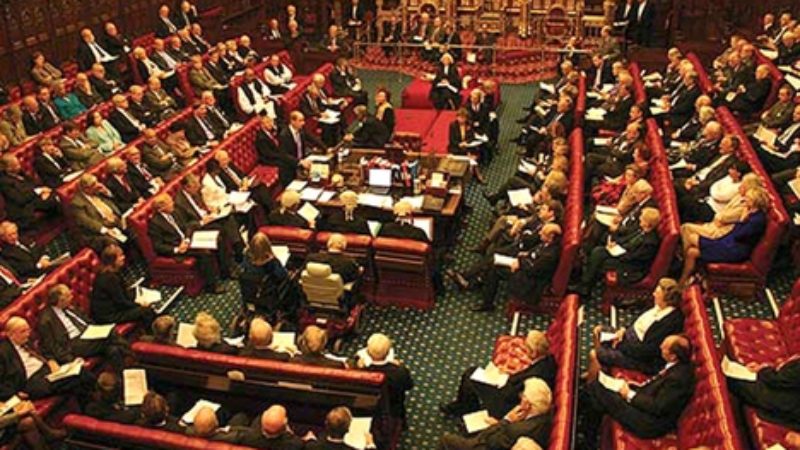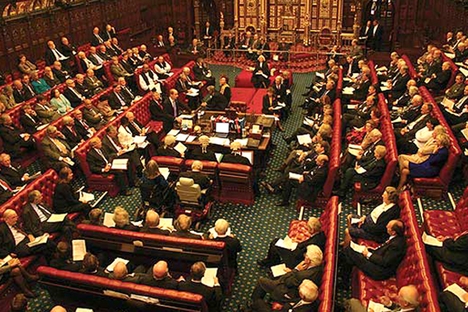

We are witnessing a full-scale attack by the Conservative government on the campaigning work of the trade union movement and on the finances and organisation of the Labour Party.
While the government and much of the media framed the Trade Union Bill around curtailing strikes and ballot thresholds, other sections are even more wide ranging in their impact on the labour movement. One clause added only in Committee stage in October seeks to prohibit members from paying their union membership subscriptions from their wages across the public sector. This will undermine good partnership working with public sector employers and divert union energies to encouraging a million members onto direct debit, which for many low paid members is not attractive.
But it is the proposal around trade union political funds that will have serious consequences for our political system and our civil society.
To take part in political activity unions have to maintain a political fund. The Bill seeks to change the long recognised system where members can ‘opt out’ of any of their subscription to the union going to the union’s political fund, to one where members have to actively ‘opt in’.
While this may appear a small change, any membership organisation knows the difficulties in getting responses from members to pay more money for something – especially if they have to do it in writing rather than online, and in three months of the Bill becoming law, as it currently says.
Many estimate that this provision could cut the numbers in political funds by 80% to 90%. And for the 14 unions with affiliated funds who pay their members’ subscriptions to the Labour Party this could reduce the party’s income (including election campaign funds) by up to £6 million per year.
Twenty-six trade unions have political funds, only half of which are affiliated to the Labour Party. These funds are used for a wide variety of campaigning work; from combating racism in general and racist parties such as the BNP, to local community campaigns such as Citizens for a Living Wage.
UNISON, the public services union which I work for, is unique in having a political fund with two sections. One is affiliated to Labour, and the other is not linked to any party and supports the union’s campaigns for public services and work with campaigning and community groups. So members have that clear choice of whether they join a fund that supports the Labour Party or not, and they are able to opt out or transfer at any time.
Our General Political Fund supports our campaigning work with Hope Not Hate, both locally and nationally, combating racism and building community links. We support equality campaigns such as Black History Month or Pride events up and down the country. And of course it funds local campaigns about hospital closures, cuts to social care and libraries or the outsourcing of public services. The changes in the Trade Union Bill will curtain much of this and so the support of many campaigning organisations will suffer.
On the UNISON Labour Link side it will massively reduce our affiliated membership fees to the Labour Party, currently £3 per member each year. It will also reduce our local and regional connections to the party, thus undermining these vital links which keep the party in touch with working people. It will reduce people’s ability to participate in the party, in policy making and in being represented at annual conference and on the NEC. So it’s not just a financial attack on the opposition Labour Party, but an attack that undermines its structures and links to the workplace.
The Bill is now in the House of Lords and the political fund aspect has become a focus of attention there. Opposition parties, crossbenchers and some Conservative MPs have expressed concern that this Bill can lead to the undermining of our democratic processes. That it breaks the cross party understandings of the last 70 years that changes to party political funding need to be agreed by consensus. That a party in government should not use that power to undermine opposition parties.
A cross party committee has been set up to look at this as the Bill goes through the Lords and its outcome may influence the final decisions. It will then be up to the Government in the House of Commons to decide whether or not the Bill rides roughshod over democracy.
Keith Birch is UNISON head of Labour Link and a member of Labour Party NEC. This article is part of a series to mark heartunions, the TUC week of action against the Trade Union Bill.




More from LabourList
‘What Batley and Spen taught me about standing up to divisive politics’
‘Security in the 21st century means more than just defence’
‘Better the devil you know’: what Gorton and Denton voters say about by-election